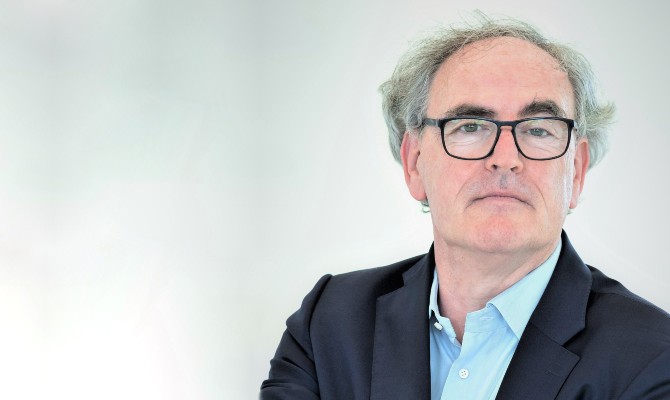‘When I started in IR, I told my wife I would stay in the job for five years – no more,’ says Dr Karl Mahler, who not only stuck with the profession but led the investor relations program at pharmaceuticals giant Roche for 20 years before (semi) retiring this year. During that time, he has won multiple IR awards for his work, pioneered ESG reporting and nurtured a host of IR talent, with former members of his team going on to run IR programs everywhere from AstraZeneca to Twitter.
Like many, Mahler moved into IR after simply finding that his particular skillset in understanding the science and also having finance and business experience lent itself perfectly to the profession. But why did he stick with investor relations?
‘I stayed so long because it was a super-interesting job. IR is a permanent challenge where you get to work with incredibly intelligent people,’ he says.

He adds that those qualities of finance, business and – in his case, science – aren’t enough to ensure longevity in a profession where your job involves juggling geopolitics, regulation, government relations, internal and external stakeholders, a willingness to travel and an ability to keep your head in a crisis, where you are expected to be available any time, day or night.
‘Sometimes you have to have all the balls in the air at the same time, then you have to catch them and throw them again,’ Mahler says. ‘All while being in full control of the things you do. So you have to have the right personality and a certain level of expertise. But you also have to have belief.’
He equates IR to the role of a salesperson: if you don’t believe in what you’re selling, people can tell, both internally and externally. ‘When you’re dealing with the CEO and CFO of a company, or an $8 bn investor, those people are experts in your business – so you have to be, too,’ he explains.
Breaking the ice
Mahler has talked to IR Magazine before about his experience pulling off what remains the largest ever cash transaction: the $40 bn acquisition of Genentech in 2009, at the height of the bear market triggered by the fall of Lehman Brothers.
But how exactly did he and the Roche team – which at the time also included multi-award-winning Thomas Kudsk Larsen, head of communications and IR at Sobi and former head of IR at AstraZeneca – manage it? How did they find the money?
A naturally engaging storyteller, Mahler explains that Roche had, in fact, never been to the capital markets before. ‘We had never needed money at Roche, so we were a nobody in the capital markets,’ he says. But the team was lucky enough to meet with a fund manager from Pimco, ‘whose mother worked for Amgen. He asked her, Do you know Roche? and she said, Of course I know Roche! That was how we broke the ice.’
Talking about the difference between the debt and equity markets, with those on the debt side ‘working together and really co-operating’, Mahler says gaining the trust of one fund helps build trust with others. Once Pimco was on board, it was easier to pursue others.
Another key point in finding the financing was a meeting in San Francisco, where Mahler says the firm was willing to give Roche $250 mn. ‘I said, That’s very nice but we need $40 bn!’ he recounts.
He asked one of the women in the meeting what she would do in his situation. ‘She gave us really great advice,’ he says – including to cut out the banks as much as possible. Mahler explains that this made sense because the banks were often approaching hedge funds rather than long-term investors ‘because they could make more money with the hedge funds’.
In the end, Mahler and the team did the targeting themselves, focusing on a mix of investors and securing financing from long-only funds – something he says helped build relationships that lasted many years. ‘So how did we pull off the largest deal in history?’ he summarizes. ‘It was the fund manager's mother, the advice offered by the woman in the meeting and the determination of my boss at the time [then CFO Erich Hunziker].’
While Mahler mentions luck when telling this story, these sorts of ‘chance’ successes aren’t really about luck. They’re about being the sort of person who asks the right questions and builds the right relationships and connections – elements as crucial to any IR career as finance skills or an understanding of your firm and sector.
This is an extract of an article that was published in the Winter 2022 issue of IR Magazine. Click here to read the full article.










